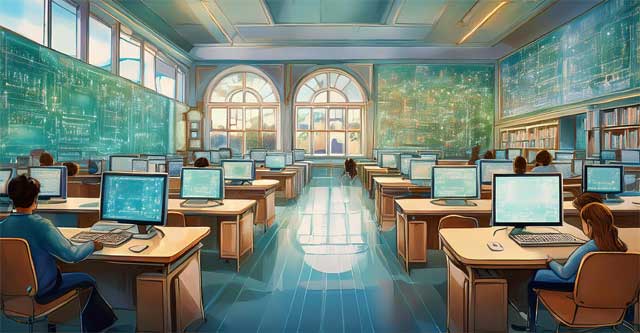July 20, 2025
Today’s engineering students are a different breed altogether. Digital natives from birth, they are accustomed to instantaneousness whether it’s streaming a movie or finding an answer with a voice command. They value visual learning, short-form content, and hands-on experience over theoretical lectures or textbooks. Many have already experienced coding, app development, or AI tools by the time they enter our campuses. However, their strength in agility and creativity often comes with challenges i.e. shorter attention spans, reduced tolerance for ambiguity, and a diminished ability to delve deeply into complex, long-term problem-solving. As educators, we must match them at their level while guiding them towards the competencies they need.
The integration of emerging technologies—AI, machine learning, IoT, robotics, and cloud computing—has changed what we teach. But more importantly, it has revolutionized how we teach. The age-old chalk-and-talk method has made room for flipped classrooms, hybrid delivery, virtual labs, project-based learning, digital live-books and real-time simulation platforms. Teaching today is a multi-modal experience, requiring not just subject knowledge but digital fluency, creativity, and an ability to engage students in dynamic, evolving contexts. In this new era, the role of a faculty member has expanded far beyond delivering lectures. Particularly in private Deemed-to-be Universities, where expectations and accountability are higher, faculty are expected to balance academic, professional, and institutional responsibilities with grace and innovation.

To thrive in this setting, faculty must demonstrate a blend of qualities and capacities, including:
- Technological Agility: Proficiency in digital tools, learning management systems, AI content platforms, and collaborative technologies is critical. Faculty must be able to curate digital content, conduct online assessments, and personalize learning experiences.
- Pedagogical Adaptability: Effective teaching now demands versatility—using outcome-based education (OBE), interdisciplinary content, and project-based assessment. Faculty must also learn to address diverse learning needs within a single classroom.
- Industry Relevance: Faculty should bridge theory and practice through industry collaborations, internships, guest lectures, and applied research. This keeps learning grounded and relevant to the rapidly shifting demands of employers.
- Mentorship and Emotional Intelligence: In a high-pressure, hyper-connected world, students are battling not just academic challenges but anxiety, distraction, and burnout. Faculty need to be empathetic mentors who foster trust, encourage resilience, and promote holistic well-being.
- Research and Innovation Orientation: With growing emphasis on patents, funded research, and national/international rankings, faculty are expected to publish, innovate, and contribute meaningfully to their institution’s intellectual capital.
- Institutional Commitment: As employees of private institutions, faculty must align with institutional vision and contribute to student satisfaction, accreditation processes (like NAAC and NBA), marketing efforts, and student career outcomes.
While the modern student brings fresh energy and ideas, they also require significant support to build foundational thinking, patience, and depth. The fast-paced, screen-driven life they lead can limit their attention to long-form learning and affect their emotional balance. This calls for a culture that combines academic excellence with empathy, mentorship, and structured guidance. On the other hand, faculty too face increasing demands—continuous up-skilling, research targets, administrative responsibilities, and performance reviews. Many feel the weight of having to be everything at once: educator, innovator, mentor, and brand ambassador.
Engineering education is no longer about producing coders or technicians—it is about nurturing problem solvers, thinkers, entrepreneurs, and ethical leaders. The university of the future must be a launch pad for lifelong learners—equipped not just with degrees, but with the confidence and competence to navigate a complex world.